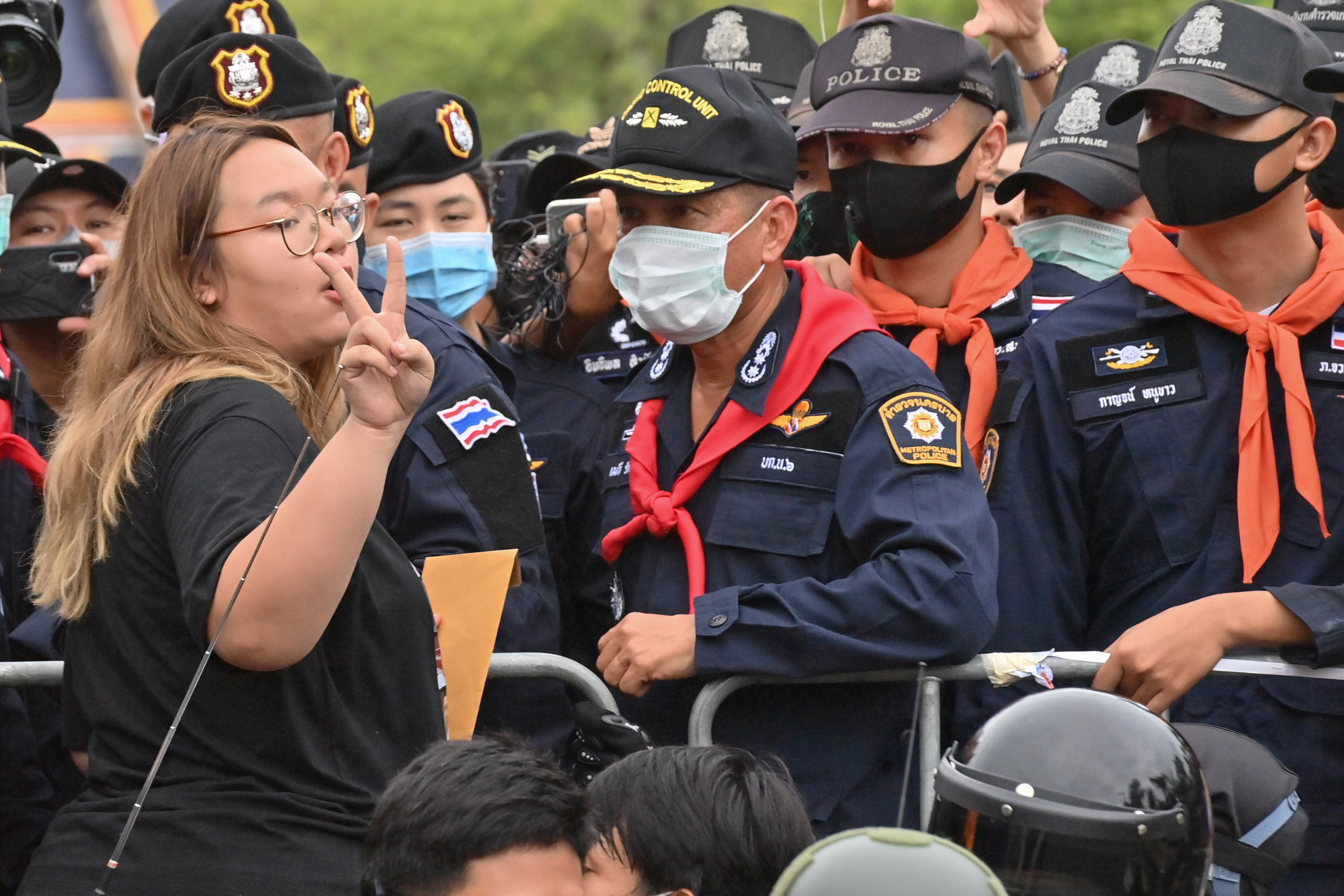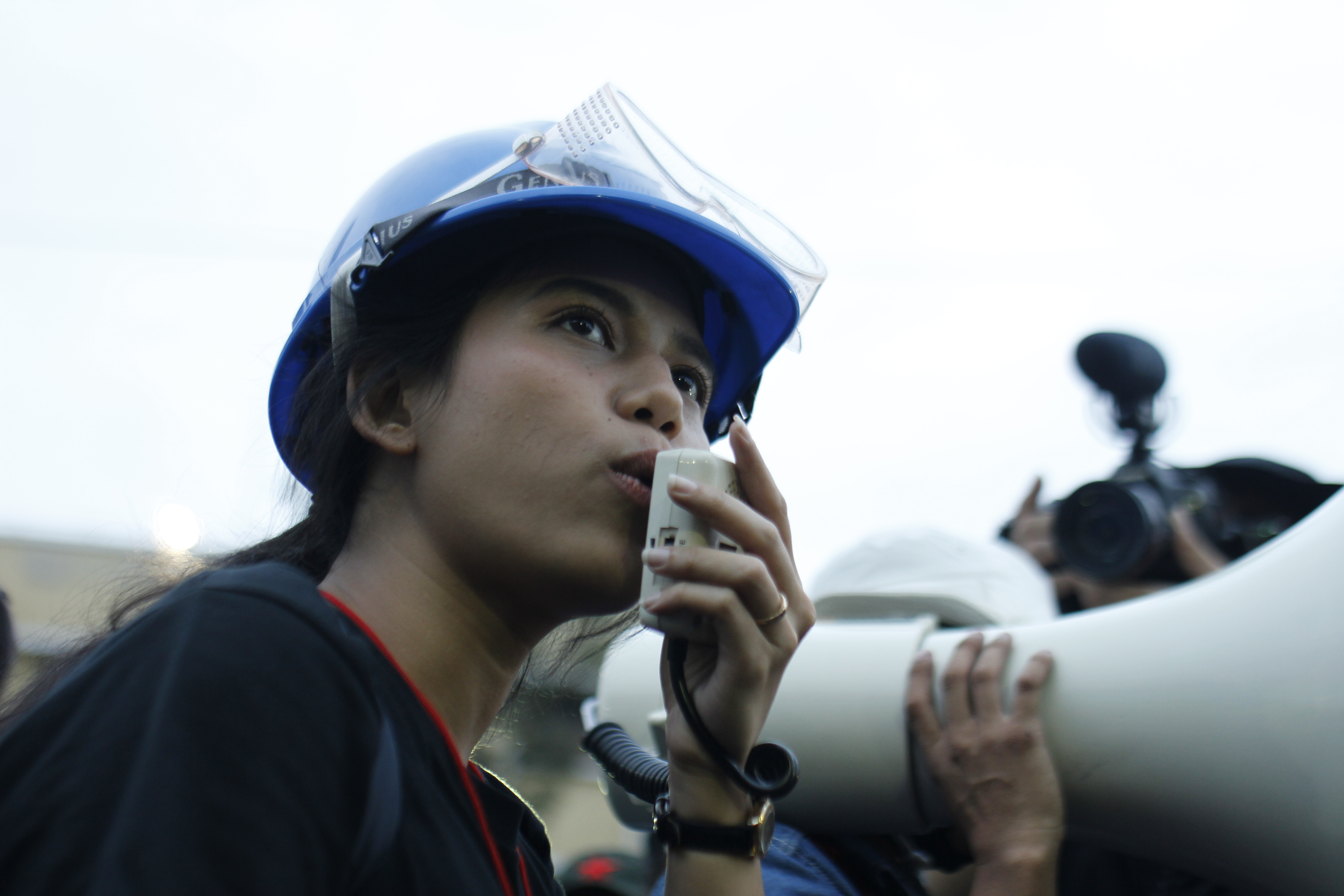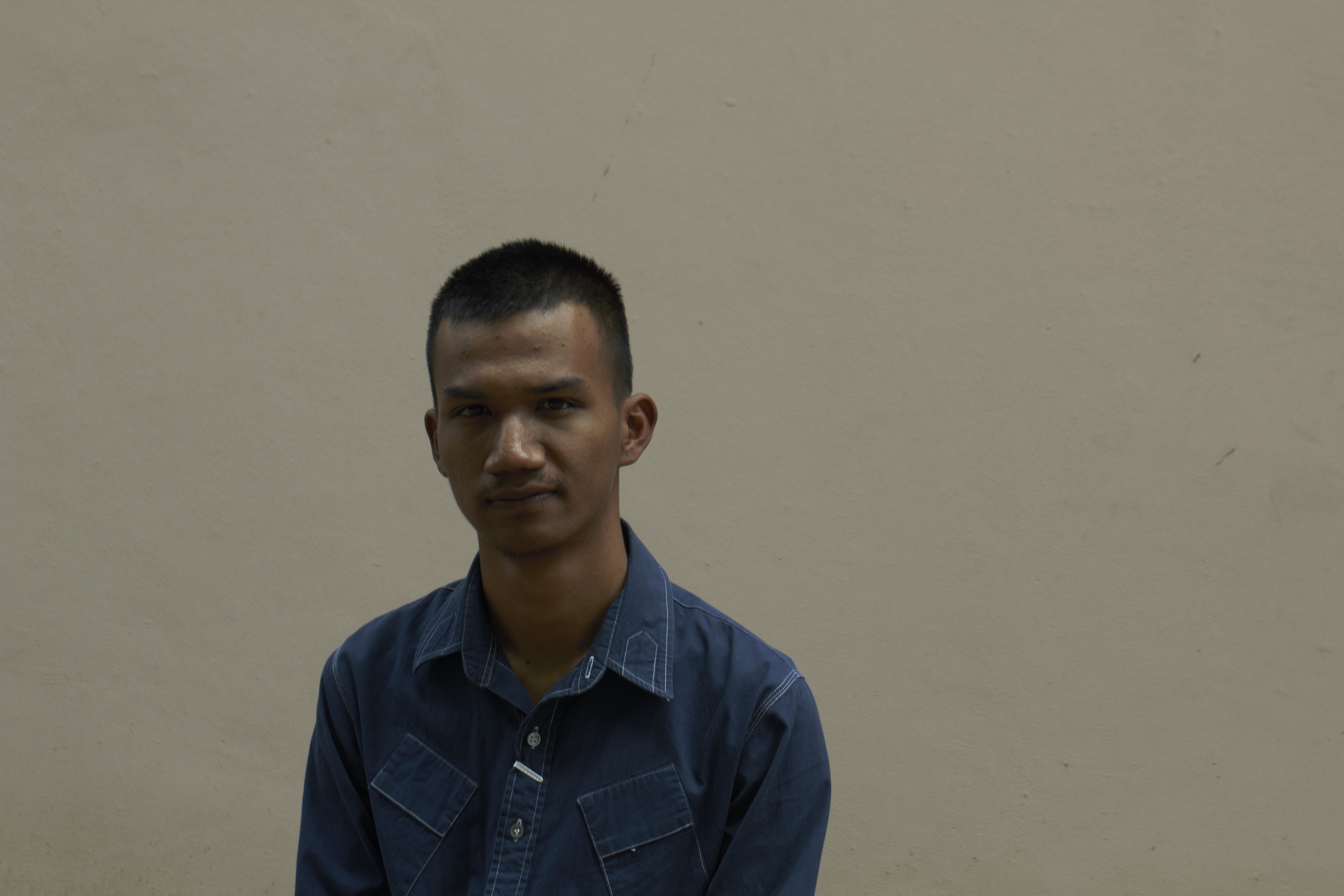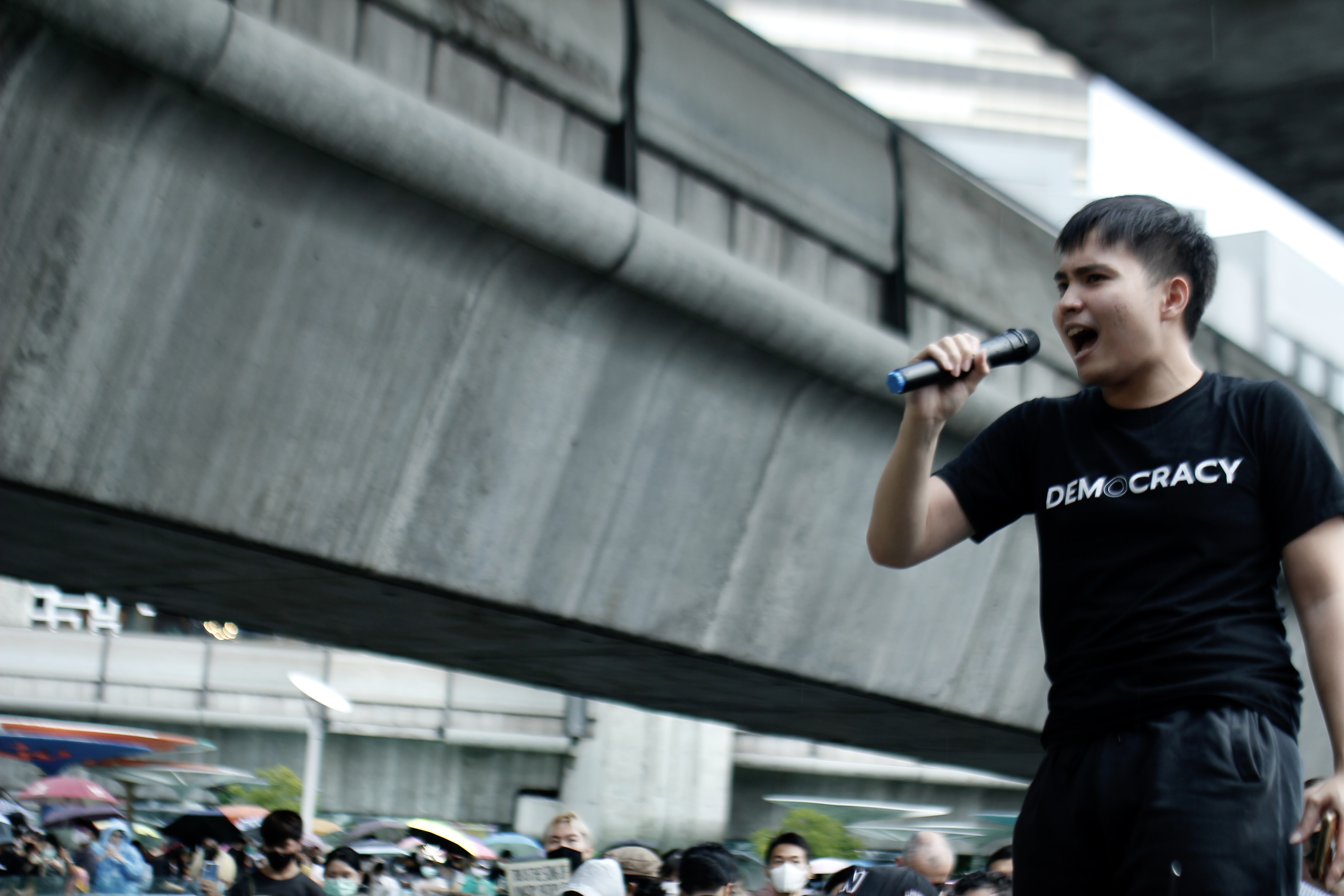2020: Thai Protesters Look Back on a Year That Changed Their Lives
December 28, 2020Thailand is no stranger to street protests, coups and political turbulence. But observers and participants agree the pro-democracy movement that gripped the country this year was something so different it changed the country forever, and there’s no going back.
Starting earlier this year and gaining momentum in July, the movement first called for three major changes to Thailand’s power structure: the dissolution of parliament, the rewriting of the nation’s military-drafted constitution, and for the state to stop harassing dissidents.
But the conversation soon morphed to public debate over the role of the kingdom’s powerful monarchy, the first time in modern history that the institution, which is protected by severe royal defamation laws, has been so openly scrutinized.
A major paradigm shift about what could and could not be said in public and online occured. The protests also brought in legions of younger generations, including highschoolers, sparking a political awakening in schools, colleges and in homes across the country.
Over the last few months, protesters have been met with an aggressive response from police. Authorities have cracked down with tear gas, water cannons, and countless arrests. But activists told VICE World News they don’t plan on slowing down. Here they reflect on what they achieved, what failed, and what’s next.
Panusaya “Rung” Sithijirawattanakul

One of the main activists calling for reform to the monarchy, Panusaya “Rung” Sithijirawattanakul, 22, said the 2020 protests challenged a deeply rooted culture, one that suppresses the nation’s ability to question and criticize entrenched systems.
Rung, who like many Thais uses a short nickname, was one of the first to publicly confront the palace and demand that the establishment-aligned royal institution undergo reforms, such as being more transparent with its enormous wealth.
“Personally, I feel that this has been my year. Everything in my life changed so quickly,” she said reflecting on how she got involved in the protests as a university student and member of the Student Union of Thailand. “I moved from being in the background to one of the front leaders, largely because I was one of the first people to speak about the monarchy. Other people felt this was outrageous. But for me, it had to be done.”
Her bold statements and speeches made headlines across the world. She made such an impact that she was listed on BBC’s 100 Women of 2020.
“Now that we’re speaking up about the monarchy and seeing how many people support this idea, it’s given us some leverage to negotiate with the government now. Even though we’re not seeing immediate changes in the system, at least we’re educating people.”
She added that one of the most important impacts brought on by the movement, is the government’s clear defensive reaction. Palace members have increased their public appearances and made significant efforts to win points with the public.
There’s has also been a broader discussion about the future of Thailand and different forms of government it could adopt, a previously taboo topic.
“We’re seeing how some people want revolution. Others want Thailand to be a republic. Now that we’ve raised the ceiling on some questions, a lot of people are open to talking and sharing different ideas.”
Rung hinted that next year they will host even bigger protests and that their speeches will be even more powerful.
Passarawalee “Mind” Thanakitvibulphol

“There have been so many changes in 2020, certain events that will become important history in the future,” says Passarawalee “Mind” Thanakitvibulphol, 25, one of the movement’s key protest leaders with the student led organization FreeYOUTH. Her group is one of a handful of activist organizations also calling for monarchy reform.
She added that the most important event in 2020, for her, was when young people began getting more involved. It happened “quickly and powerfully,” she said.
“This political awareness is different to any other time in our history,” she said, pointing to how more Thais are more socially engaged than ever before. She added that discussion of hot button topics such as the monarchy are being normalized, and that people can now see “if there’s a hint of discrimination against human rights, or freedom of expression, then people will call for these laws to be abolished or adjusted.”
These kinds of transformative conversations were not happening to the extent that they are now, or at least not in the same way.
“The style of the demonstrations are also different. People are starting to realize that we all have the right to speak up and criticize the government. If the government fails to serve the people, we, as the citizens, have the right to call them out. This is the political awareness that begins within each of us individually. One citizen, one voice.”
But this rejection of the status quo has come at a price.
The majority of key leaders are now facing a slew of royal defamation charges under the dreaded 112 law, so-called for its number in the criminal code. Each count carries a maximum sentence of 15 years in prison.
Over the last few months, the Thai government has pursued at least 32 Thais for allegedly violating section 112. Yet many leaders don’t see the resurgence of the law, which had not been used at the beginning of the year, as a reason to halt the demonstrations.
Panupong “Mike” Jadnok

Despite legal harassment, 23-year-old Panupong Jadnok, another protest leader facing 112 charges, feels that as a result of their campaigning, the international community now sees more clearly when the Thai government violates human rights.
“It has been a success,” he said. “But not one hundred percent. One achievement from the demonstrations is that we have created awareness about human rights and freedom of expression among the youth, students, and others. They [the public] now see when our government discriminates against us, and violates international human rights standards.”
A member of the Student Union of Thailand, Panupong has long understood the inevitability of facing legal consequences for speaking out. He’s been arrested almost a half a dozen times. Like Panupong, many others have already been arrested then subsequently released on bail.
“I lost 20 days of my life in prison even though I was not convicted,” he said. “I lost my sense of personal safety, because there are rumors of assassinations from the powerful.”
Despite acknowledging the very real dangers of staring down Thailand’s military-backed government, Panupong remains optimistic after a whirlwind of a year. Starting from humble beginnings, he swiftly became one of the most notable protest leaders for his work spotlighting systems of inequality in Thailand that keep low income populations at the bottom.
“I’ve gained friendships among the crowd and love from the masses,” he said. “And I still have hope for this protest.”
Tattep “Ford” Ruangprapaikitseree

But some key players are less sanguine.
Tattep “Ford” Ruangprapaikitseree, 23, was blunt about the movement’s failings. He told VICE World News how the movement would have to raise the bar in the new year.
“We need to keep pushing,” the leader from FreeYOUTH said. “I don't speak for the whole movement, but, for me, I think we should raise the pressure. We can maybe escalate the movement, escalate with our actions.”
He added that their methods would need some tweaking when they return to the streets next year, adding that it’s important to cause slightly more disruption to show the government that they are serious. If they don’t, he said, they would risk being simply ignored.
“This is what we’ve been doing for half a year. And we need to understand that using this method, we didn’t have any success with any of our demands,” he said.
“So we need to escalate our actions. We can rally or march around Bangkok again, but not just on one road. But we can march at least three or four roads,” noting the efficacy of shutting down huge swathes of the city and how other anti-government protests caused even more friction.
In the last few months, there has been significant disagreement between the two primary anti-government protest organizations, FreeYOUTH and Student Union of Thailand.
While the Student Union of Thailand has focused on calls for democratic and monarchy reforms as their two main pillars, FreeYOUTH has been slightly more opaque about their demands, asking the public to consider shifting towards a republic and away from the constitutional monarchy it has now. These differences have led protest groups to organize separate demonstrations at different points throughout the year.
Ford believes that creating violence is still out of the question. He believes a defensive response to police brutality is justified. Violence is only necessary when provoked first, he explained.
“I think it depends on the action from the government, if the government uses violence against the protesters, then it’s legitimate for the protesters to protect themselves,” he said. “When the police use water cannons, we will not stand there waiting for more water to come. It makes sense for us to try to stop it, to break it down.”

